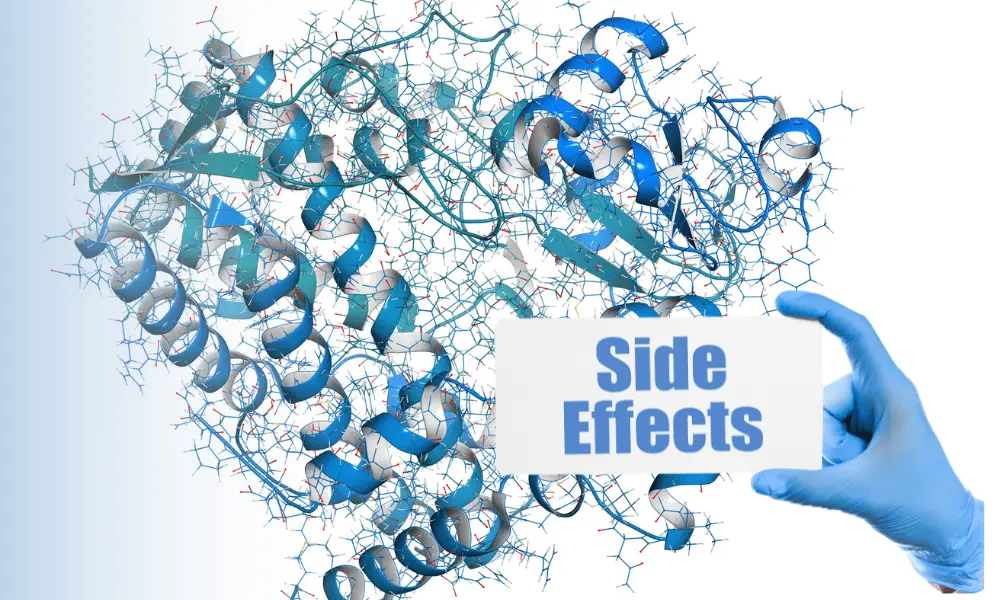Peptides have gained attention in the fitness and health industry for their potential role in weight loss. These small chains of amino acids are thought to contribute to weight management by affecting various physiological processes, including appetite regulation, metabolic rate, and body composition. Research into peptides extends into how they may enhance the body’s ability to burn fat, improve muscle mass, and regulate hormones that influence weight.
With the rise in obesity and related health problems, scientists are exploring alternative strategies to aid in weight loss. Peptides, due to their biological activities, are a subject of interest because they can potentially induce weight loss with minimal side effects. However, understanding their mechanisms and ensuring safety requires a close look at clinical evidence and studies that explore their efficacy and potential risks. The development of peptide-based weight loss strategies increasingly appears in scientific literature, representing a promising, if not fully understood, avenue for tackling weight-related health issues.
Quick Summary
- Peptides may play a significant role in weight management through their influence on metabolism, appetite, and muscle mass.
- Robust scientific research is necessary to validate the efficacy and safety of peptides for weight management.
- Peptide-based weight loss strategies are emerging, with a focus on integrating them into comprehensive health plans.
Peptides For Weight Loss Overview

Peptides have emerged as a significant focus in the arena of weight management, offering a potential therapeutic approach to obesity by influencing various metabolic processes.
The Science of Peptides for Obesity
Peptides are short chains of amino acids that are building blocks of proteins and play a crucial role in the regulation of body weight. They can interact with receptors in the brain to modulate appetite and satiety. Furthermore, certain peptides have been observed to increase energy expenditure by influencing the body’s metabolism, making them promising agents in combating obesity.
Significance of Amino Acids in Fat Loss
Amino acids, the individual units that make up peptides, are essential for the synthesis of hormones and enzymes that are directly involved in the breakdown of fat. For instance, the amino acid leucine has been shown to enhance fat oxidation and preserve lean muscle mass during weight loss, which is vital for maintaining a higher metabolic rate.
- Leucine: Enhances fat oxidation, preserves lean muscle mass.
Peptide Therapy: Mechanism of Action
Peptide therapy involves the administration of specific peptides that have been identified to support weight loss. These peptides can perform multiple actions, such as:
- Stimulating the release of growth hormone: which can lead to an increase in muscle mass and a decrease in body fat.
- Regulating blood sugar levels: by affecting insulin sensitivity, which is essential for weight control.
- Promoting feelings of fullness: by affecting appetite-regulating hormones like ghrelin.
In summary, peptide therapy targets various mechanisms related to metabolism and appetite to aid in weight management.
References
Clinical Evidence and Studies

The existence of FDA-approved peptide therapies highlights the rigor of clinical evidence supporting peptides’ role in weight loss. These interventions have been scrutinized through extensive clinical trials, ensuring a scientific basis for their utility in obesity and diabetes management.
Detailed Analysis of Clinical Trials
Clinical trials have played a pivotal role in establishing the effectiveness of peptides in the weight loss domain, with particular attention paid to how these compounds affect satiety, glucose metabolism, and fat loss. Semaglutide, a glucagon-like peptide-1 (GLP-1) analog, for example, was the subject of a robust clinical trial that demonstrated significant weight loss in participants compared to a control group.
- Study Name: SUSTAIN (Semaglutide Unabated Sustainability in Treatment of Type 2 Diabetes)
- Participant Numbers: 3,297 individuals
- Results: Patients on semaglutide showed a mean weight loss of 4.5 kg, far exceeding the control group.
Similarly, tirzepatide has shown promising results in clinical trials, notably improving blood sugar levels in people with type 2 diabetes and contributing to weight loss.
- Study Name: SURPASS Clinical Program
- Participant Numbers: Varies across trials (up to 9,784 in SURPASS-2)
- Results: Participants experienced significant weight reduction and improved blood sugar control.
For further details on these studies:
- Semaglutide: SUSTAIN Clinical Trials
- Tirzepatide: SURPASS Clinical Trials
FDA-Approved Peptides for Weight Loss
The Food and Drug Administration (FDA) has approved several therapeutic peptides for weight loss, solidifying their status in medical treatments. Semaglutide, marketed as Wegovy, received approval for chronic weight management in adults with obesity or overweight, with at least one weight-related comorbidity such as hypertension, type 2 diabetes, or dyslipidemia.
- Approval Date: June 2021
- Clinical Relevance: This GLP-1 agonist is indicated for individuals struggling with weight issues, providing an option with a statistical background in clinical trials.
On a similar note, the FDA has not yet approved peptides like human growth hormone (HGH) for weight loss, as its approval is predominantly for specific growth-related conditions, underscoring the regulatory scrutiny such compounds undergo.
The approval process ensures that only peptides with well-documented efficacy and safety profiles become available as therapeutic interventions for weight loss.
Potential Side Effects and Safety Profile

When considering peptides for weight loss, it is crucial to understand the potential side effects and evaluate their safety profile.
Common Adverse Reactions
The use of peptides may lead to a variety of common adverse reactions. These include:
- Nausea and Diarrhea: Gastrointestinal issues are frequently reported, with varying severity.
- Injection Site Reactions: Pain, inflammation, and swelling at the site of injection.
- Headaches: An occurrence of mild to moderate headaches is evident in some cases.
- Constipation: A few individuals may experience reduced bowel movements.
Long-Term Health Implications
Long-term use of peptides has been linked to several health concerns, which necessitates close monitoring:
- High Blood Pressure: Some peptides can elevate blood pressure, necessitating regular check-ups.
- Insulin Resistance: There is a potential risk of disturbed glucose metabolism, leading to insulin resistance.
- Pancreatitis: In rare instances, peptides have been associated with inflammation of the pancreas.
Understanding the multitude of possible side effects and the long-term health implications is fundamental for those considering these compounds for weight loss. It is advisable to proceed with caution and under medical supervision.
Comparative Analysis of Peptide Forms

In the context of weight loss, peptides are available in various forms and have distinct mechanisms of action. This section examines the differences between injectable peptides and oral supplements and discusses the variations in peptide therapies.
Injectable Peptides vs Oral Supplements
Injectable peptides typically have a higher bioavailability compared to oral supplements because they bypass the digestive system and directly enter the bloodstream. A common example is the GLP-1 receptor agonist, which is often administered by injection to enhance its efficacy in promoting weight loss. Injectable medications like liraglutide, a GLP-1 receptor agonist, can reduce appetite and food intake.
Oral supplements, on the other hand, are more convenient to administer but may have reduced efficacy due to breakdown in the digestive system. The bioavailability of the peptide is a key factor; peptides that can withstand digestive enzymes, or are formulated for protection against them, may be effective as oral agents.
Variations in Peptide Therapies
Peptide therapies for weight loss can vary in their amino acid sequence and function. Some peptides may mimic hormones that regulate appetite, while others can affect metabolism or fat utilization. The selection of a peptide form depends on the patient’s specific needs, their medical history, and the intended therapeutic outcome. Medications vary greatly in terms of their structure, dosage requirements, and how they are metabolized by the body.
For example, a short-chain peptide like ipamorelin is designed to stimulate the release of growth hormone, which can contribute to fat loss. It is usually available in injectable form to ensure its stability and effectiveness. In contrast, peptides formulated for oral intake must be able to resist enzymatic degradation or be encapsulated to improve absorption.
Incorporating Peptides into a Weight Loss Strategy

Peptides, short chains of amino acids, have garnered attention for their potential role in weight loss strategies. These compounds are of interest for their ability to potentially enhance fat loss, regulate appetite, and promote muscle growth.
Recommended Dosages and Administration
When incorporating peptides for weight loss, it is crucial to adhere to recommended dosages as excessive intake may lead to adverse effects. Dosages can vary depending on the type of peptide used but often range from 0.5 to 2.0 mg per day. Administration is typically subcutaneous, meaning the peptide is injected into the fat layer beneath the skin. This method allows for peptides to be absorbed directly into the bloodstream, facilitating optimal delivery to target tissues.
- Dosage Table:
- Peptide Type: | Typical Dosage (mg/day) | Administration
- CJC-1295 | 0.5 – 2.0 | Subcutaneous Injection
- Ipamorelin | 0.2 – 1.0 | Subcutaneous Injection
- HGH Fragment 176-191 | 1.0 – 2.0 | Subcutaneous Injection
Combining with Diet and Exercise for Optimal Results
For peptides to contribute significantly to weight loss, they must be combined with a healthy diet and regular exercise. An intake of balanced nutrients and caloric deficit is necessary to promote fat loss while maintaining muscle mass. Peptides may also enhance insulin sensitivity, which can be beneficial for managing cravings and fullness.
- Exercise Considerations:
- Regular Exercise: enhances the efficiency of peptides in burning fat and promoting muscle growth.
- Muscle Mass Preservation: supports a higher resting metabolic rate, conducive to weight loss.
- Exercise Type: a mix of cardiovascular and resistance training is most effective.
Adjustments in diet and exercise regimens may further leverage the appetite-controlling and muscle-sustaining properties of peptides, creating a synergistic effect towards achieving weight loss goals.
References
Frequently Asked Questions

This section addresses common inquiries and provides clear, evidence-based information about peptides and their role in weight management.
What are the potential side effects of using peptides to assist with weight loss?
Research indicates that side effects from using peptides may include increased hunger, dry mouth, and potential numbness at the injection site. They may also alter blood sugar levels, so individuals with diabetes should exercise caution.
Which peptides are considered most effective for fat loss in women?
For women, CJC-1295 and Ipamorelin have been shown to be effective for fat loss by increasing growth hormone levels, which can lead to an increase in metabolic rate.
Are oral peptides an effective method for weight loss?
While there are oral peptides available, their effectiveness for weight loss is often less than injections due to lower absorption rates in the digestive tract.
Can peptides be used for both fat loss and muscle gain, and if so, how?
Peptides such as GHRP-6 and GHRP-2 facilitate the release of growth hormone, which can lead to fat loss while promoting muscle gain through increased protein synthesis and muscle tissue growth.
What can one expect in terms of weight management after discontinuing the use of weight loss peptides?
Post-discontinuation, weight management will depend on continuing a balanced diet and exercise routine. Any weight loss achieved with the aid of peptides may be reversed if one returns to previous lifestyle habits.
What have user reviews indicated about the efficacy of peptides for losing weight?
User reviews generally indicate that when combined with diet and exercise, peptides can enhance weight loss results. However, individual experiences can vary depending on lifestyle, body composition, and adherence to peptide protocols.
Dr. Grant Fourie, a specialist in male hormones, is based in Cape Town, South Africa. He provides comprehensive treatments for conditions related to low testosterone, such as erectile dysfunction, fatigue, and mood changes. His methods include hormone replacement therapy and other modern treatment options.
Contact me via email or phone to book personal appointment in my clinic: The Village Square, Cape Town - South Africa



